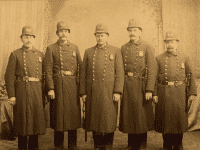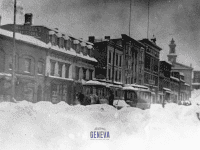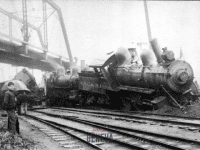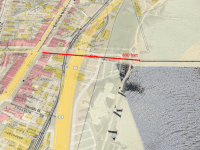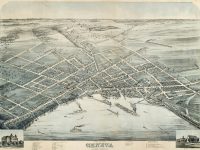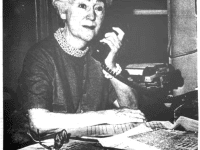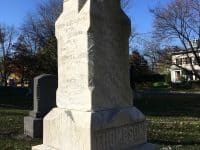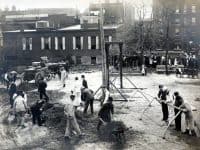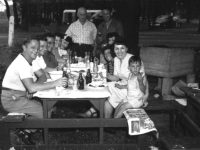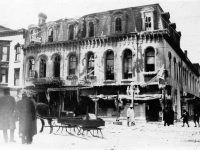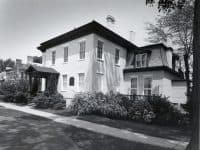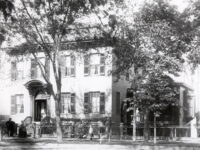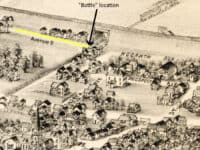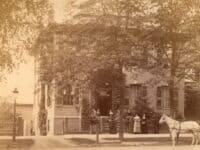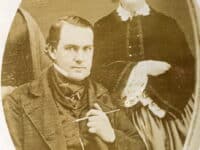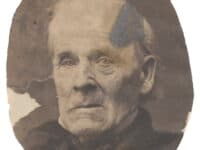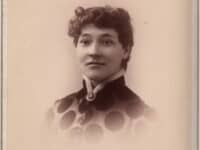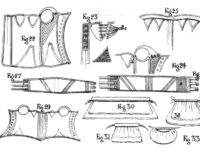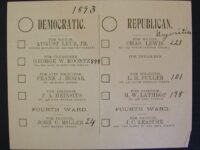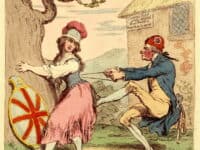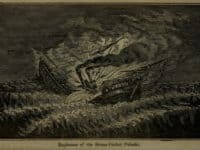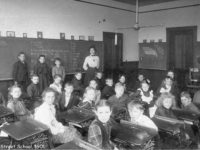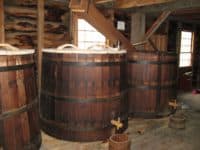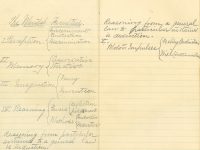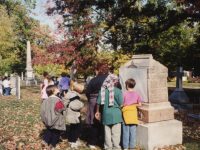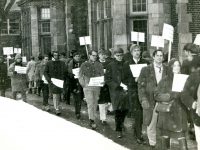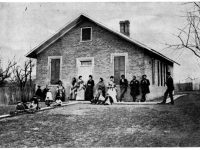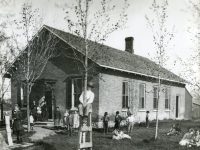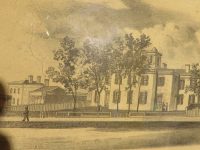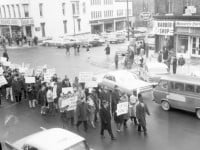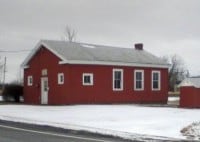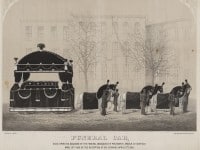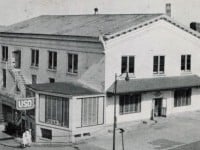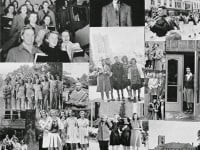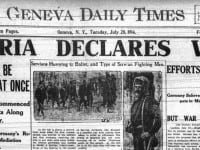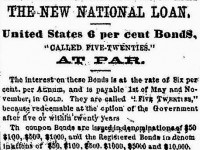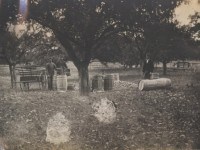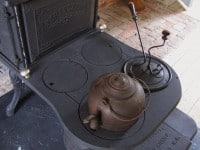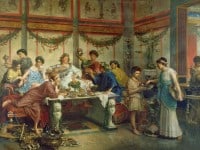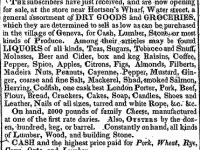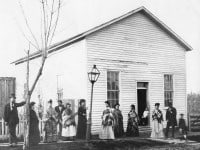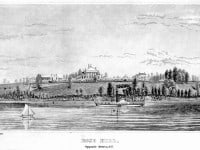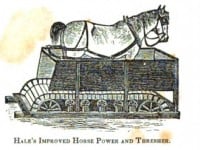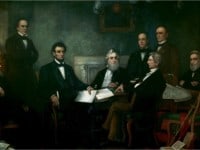-
May 2nd, 2025
A short history of Geneva's Mensch family, including an early hotelier and one of the first village police officers.
-
January 3rd, 2025
A few highlighted events from the Geneva Courier's 1879 Year in Review.
-
November 1st, 2024
Horrific railroad accidents were common in the 1800s in Geneva and elsewhere, as technology and speed outstripped concerns for risk and safety.
-
July 19th, 2024
A 1904 map of Geneva's lakefront reveals the extent of change that has occurred in the built environment and residents' attitudes about it in 120 years.
-
May 10th, 2024
An 1873 Geneva bird's-eye view represents a popular art form in 19th-century America and details the city's built environment.
-
December 15th, 2023
The life and career of journalist Mildred Jennings, one of 20th-century Geneva's first woman journalists.
-
October 6th, 2023
The story of an ordinary family in Geneva's past, the Thompson Family in Washington Street Cemetery.
-
July 10th, 2023
Early Geneva playgrounds provided safe summertime recreation for a growing population of children in the city in the first quarter of the 20th century.
-
March 24th, 2023
Help us expand our collection of recipes, cookbooks and documented food traditions. Share your Geneva recipes with us and let us know why they matter to you.
-
December 23rd, 2022
A glimpse at Geneva in December 1922 through the newspaper.
-
October 14th, 2022
There were many changes involved in transforming the Prouty-Chew house from a house to a museum.
-
June 30th, 2022
Discover how the Prouty-Chew House changed over the Prouty family's forty-year residence.
-
April 15th, 2022
When the Geneva village trustees went to war over a rail crossing.
-
December 26th, 2021
A chronicle of Phineas and Adelaide Prouty's children.
-
October 8th, 2021
Take a peek into the early married life of Phineas Prouty Jr. and his wife Adelaide.
-
July 2nd, 2021
Phineas Prouty Sr. and his family spent 50 years living in the building we use as a museum. Discover how their story begins.
-
April 2nd, 2021
Why did medical women find professional success in the 19th century, only to fall back in the 20th?
-
March 5th, 2021
The second post in our "Historians at Home" series.
-
December 11th, 2020
For a commuter, Geneva is its built environment, especially the roadways.
-
November 12th, 2020
In Part II of our series on corsets, we look at changes in 19th-century corsets and an example from the Geneva Historical Society collection.
-
October 2nd, 2020
Look back at Geneva’s controversial mayoral election of 1903.
-
July 24th, 2020
The early history of corsets is tied to morality and the ideal figure in fashion.
-
May 8th, 2020
If you want to remember what is happening now, what you think about COVID-19, make a record now.
-
December 26th, 2019
Danger on water and land plagued 19th-century Americans.
-
November 14th, 2019
A review of the period of school expansion and reform in Geneva during the late 1800s.
-
June 21st, 2019
Find out more about beer brewing in early Geneva.
-
May 31st, 2019
Join us for the 2019 Annual Dinner and Meeting.
-
March 22nd, 2019
Join us to discuss the history and development of sports and athletics in Geneva in the 20th and 21st centuries.
-
February 22nd, 2019
New exhibit explores 120 years of high school athletics in Geneva.
-
February 1st, 2019
What was 19th-century schoolwork like?
-
November 9th, 2018
What can you learn from a cemetery? Every autumn Geneva's second and fifth grade students get to find out.
-
July 6th, 2018
1968, the year the Geneva Historical Society opened Rose Hill Mansion as a museum, was a year of momentous change.
-
June 22nd, 2018
In conjunction with the exhibit opening of "Dove's Geneva, the Geneva Historical Society and the Arthur Dove Tribute Group are hosting a special event celebrating the importance of Dove and his work to Geneva.
-
January 12th, 2018
The Historical Society will host two meetings in January to solicit community input on a facilities expansion project.
-
January 5th, 2018
Many Americans are familiar with the segregated schools of the Jim Crow South, however, officially segregated schools existed in most 19th-century communities in the North, including Geneva. It took the concerted efforts of Geneva's African-American community to advocate for improved education and eventual integrated schools for their children.
-
December 1st, 2017
Where did the Christmas pudding come from and why don't Americans eat it?
-
August 4th, 2017
Geneva Middle School students create a mural recounting Geneva High School boycotts of the 1970s.
-
March 3rd, 2017
Here is your chance to help us curate the exhibit Stuff: A Material History of Geneva, opening June 2017.
-
January 20th, 2017
Free public schools appeared in Geneva in the mid-19th century.
-
November 4th, 2016
The Geneva City School District can trace its birth to 1839, the year that the village’s Districts No. 1 and No. 19 merged to form the state’s first union school district. By the 1830s, the community had a College, dozens of private schools, and two public schools for the basic instruction of children of all classes. Yet schooling in the antebellum period here and throughout
More »
-
February 26th, 2016
As we at the Geneva Historical Society look back at the 1960s this year, we cannot ignore the protest movements that sprung out of that decade, particularly the Civil Rights Movement.
-
November 6th, 2015
Like much of what happened in the decade, 1960s food spanned extremes from French haute cuisine to Spaghetti-Os and back again.
-
July 2nd, 2015
The recent debates over Geneva’s school budget and national arguments about the Common Core curriculum have had me thinking and reading a lot about the history of education this past spring. Education and schooling have been part of life in Geneva from its early settlement, though not in a form most modern Genevans would recognize.
-
April 16th, 2015
One hundred fifty years ago this week actor John Wilkes Booth changed American history when he stepped into the Lincolns' booth at Ford's Theater and shot the president in the back of the head, the first man to assassinate a U.S. president. The assassination was an awful event that shook the nation just a week after Lee’s surrender overjoyed the North.
-
March 2nd, 2015
The Geneva USO Club helped the community do its part during World War II.
-
December 5th, 2014
With World War II came the birth of the American teenager. While we tend to associate the flowering of teen culture with the baby boomers, it was actually their immediate predecessors, the so-called “Silent Generation” who were first referred to as teenagers. Then, as always, the older generation thought that the younger generation was at best misguided, at worst they were described as selfish, willful,
More »
-
October 3rd, 2014
As we saw in a previous post about the Herendeen family, World War I came about so suddenly and unexpectedly that few people were prepared for it. As mobilization for war began across Europe, there were over 100,000 Americans visiting or living abroad who were unable to leave easily.
-
August 8th, 2014
Banking in the early years of the American Republic was decentralized, inefficient and disorganized, leading to frequent panics and depressions. As in many other areas of national development, it was the Civil War which prompted radical change in the country’s financial system.
-
July 3rd, 2014
As we saw last month, the Swans at Rose Hill relied on female workers to do much of the housework and childcare. Running the farm operations required male workers.
-
May 30th, 2014
At Rose Hill in the mid-19th century, the Swans hired laborers for agricultural and domestic work. This post examines the female domestic servants at the house
-
February 5th, 2014
Overview of banking in early Geneva.
-
December 23rd, 2013
A brief history of the roots of American Christmas.
-
November 26th, 2013
The rise of the modern consumer culture as seen in Geneva.
-
October 31st, 2013
During the 19th century, Genevans went from preserving food at home in order to be able to eat to purchasing luxury preserved foods in stores.
-
September 27th, 2013
Chronicle of the 1878-1879 Geneva diphtheria epidemic.
-
August 30th, 2013
Food preservation techniques of the Iroquois and European settlers.
-
July 31st, 2013
Geneva's African-American community hosted a number of emancipation celebrations in the 19th century to celebrate their freedoms while protesting slavery and racial inequality.
-
May 31st, 2013
Robert Swan's farming practice was what the modern observer could call sustainable.
-
March 25th, 2013
Robert Swan's transition from city dweller to farmer at Rose Hill.
-
February 25th, 2013
A little over one-hundred fifty years ago, on September 22, 1862, President Lincoln took a step he had planned for months and proclaimed that as of January 1, 1863 “all persons held as slaves within any State or designated part of a State, the people whereof shall then be in rebellion against the United States, shall be then, thenceforward, and forever free.…”
-
January 28th, 2013
A comfortable house in winter was a rare thing in much of the United States prior to the late 19th century. According to one English visitor to Cayuga, NY in 1827, American houses were built “expressly for summer, without the slightest reference to the six months’ winter that they suffer.”
For more posts, please choose from the categories on the left.

